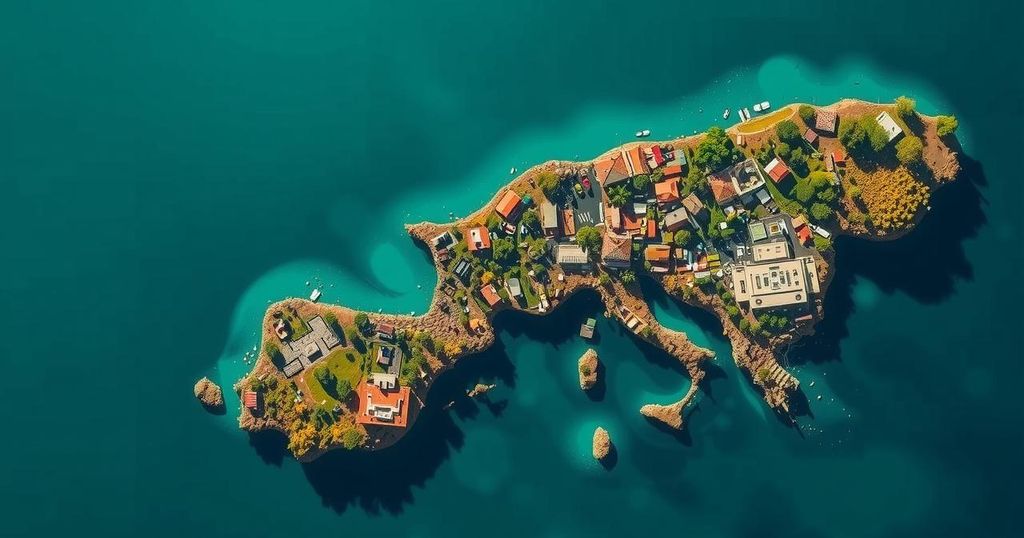Sardinia’s Climate Leadership: A Struggle for Autonomy and Sustainability

Sardinia is asserting its autonomy in renewable energy policy amid tensions with the Italian government. President Alessandra Todde emphasized collective action against climate change while announcing a suspension of numerous energy projects. The island’s residents united against external pressures to reclaim jurisdiction over local planning, reflecting a broader cultural and political awakening in the context of the ongoing climate crisis.
Sardinia, an autonomous region of Italy, is positioning itself as a climate leader by asserting control over its renewable energy projects amidst conflicts with the Italian government. Recently, Sardinian President Alessandra Todde emphasized the need for collective action against climate change, especially following severe weather events affecting both Sardinia and nearby Valencia, Spain. In a significant move, the Sardinian Regional Council enacted an 18-month suspension on numerous wind and solar projects initiated under the previous administration, sparking a legal battle with Rome over regional jurisdiction.
As thousands prepare to gather at COP29 in Baku, the island demonstrated its commitment to sustainable practices, as exhibited by solar energy initiatives in local municipalities. President Todde’s confrontational remarks against the central government reveal a broader struggle against external pressures perceived to exploit Sardinia’s resources for mainland interests. The island’s inhabitants have united against perceived impositions, exemplified by recent protests in Cagliari where advocates delivered over 210,000 signatures as part of the “Pratobello 24” campaign that demands local governance over urban planning and energy strategies.
Sardinians assert that their collective identity, rooted in a rich cultural heritage and historical experiences of resistance, must be preserved amidst the energy transition. Local leaders like Mayor Maurizio Onnis stress the dangers posed to historical sites, fearing that the encroachment of new energy infrastructures could irreparably alter the landscape. In response, the Sardinian government has pledged to conduct consultations with citizens and prioritize projects that protect both cultural and environmental assets. This commitment reflects a newfound assertion of Sardinia’s autonomy and determination to achieve a sustainable energy future without compromising its identity.
Sardinia’s struggle for an autonomous approach to climate policy arises from the island’s unique cultural and political context within Italy. Sardinia, which is home to rich archaeological sites and a distinct cultural identity, faces pressures from the Italian government to meet renewable energy targets set by the European Union. This tension highlights the island’s desire to assert control over local planning and environmental stewardship while confronting external pressures that threaten to exploit its natural resources. Notably, the sedimentation of historical grievances concerning autonomy and external governance shapes the contemporary discourse on climate strategy and local rights in Sardinia.
Sardinia’s determination to take charge of its energy future amidst climate challenges exemplifies how localized initiatives can respond effectively to global concerns. The island’s assertion of its autonomous rights, along with community-supported projects that prioritize ecological preservation, demonstrate a significant shift towards self-governance in climate action. This ongoing legal battle with the Italian government underscores the critical importance of local voices in shaping sustainable practices that reflect the region’s unique cultural heritage. Sardinia serves as a paradigm for other regions grappling with similar tensions between local needs and overarching governmental directives.
Original Source: www.salon.com







